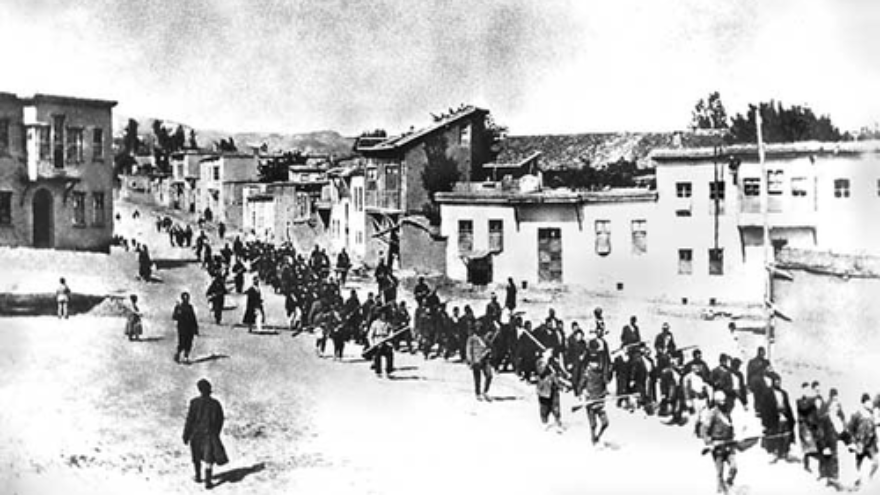Sen. Lindsey Graham (R-S.C.) blocked a resolution on Wednesday recognizing the 1915 Armenian Genocide after being part of a White House meeting of Republican senators with U.S. President Donald Trump and Turkish President Recep Tayyip Erdoğan.
Sen. Robert Menendez (D-N.J.), the top Democrat on the Senate Foreign Relations Committee, requested consent to pass the measure that would have been “official recognition and remembrance” of the 1915 Turkish massacre of 1.5 million Armenians.
“The United States foreign policy must reflect an honest accounting of human-rights abuses, crimes against humanity, ethnic cleansing and genocide,” he said. “We cannot turn our backs on the Armenian victims of genocide.”
Graham responded that senators shouldn’t “sugarcoat history or try to rewrite it.”
Graham added that he was against the resolution “not because of the past, but because of the future.”
Under Senate rules, a senator can request consent to pass any measure, though any senator can also block it.
The U.S. House of Representatives last month passed a resolution recognizing the genocide. The tally was 405-11, with three, including Rep. Ilhan Omar (D-Minn.), voting “present.” All 11 votes against it were from Republicans.
At a press conference with Trump at the White House on Wednesday, Erdoğan denounced the House passage of the resolution.
The Simon Wiesenthal Center slammed Graham’s move.
“It’s disappointing because Senator Graham is deeply respected certainly by all. … It’s a mistake from our point of view,” Rabbi Abraham Cooper, the organization’s associate dean and director of global social action, told JNS.
“It’s a shame that here we are in the 21st century, still debating the past,” he added.
Cooper remarked that “rewarding Erdoğan’s bad behavior is not going to make him behave any better.”
Nonetheless, said Cooper, “I think it’s unfortunate that [Graham blocked the resolution].” He expressed hope that it will still be brought up for a Senate vote.


























